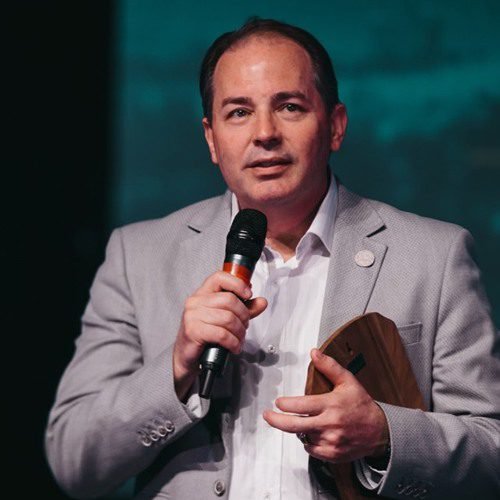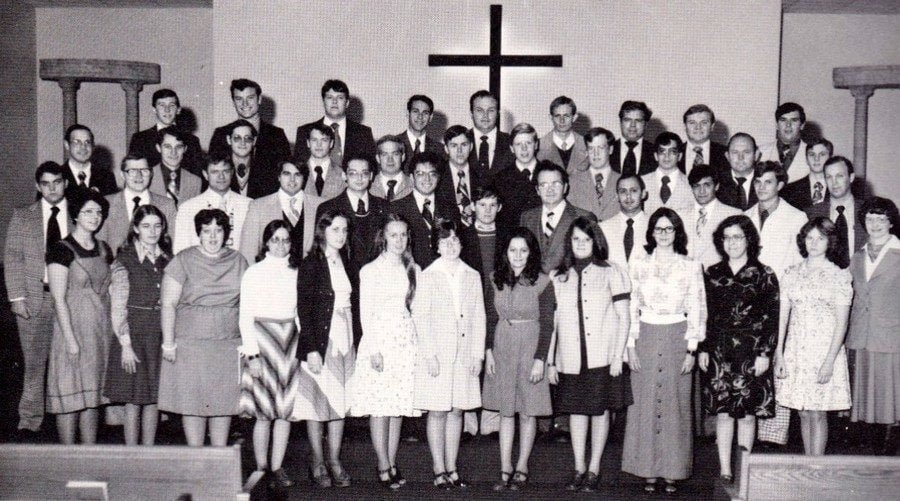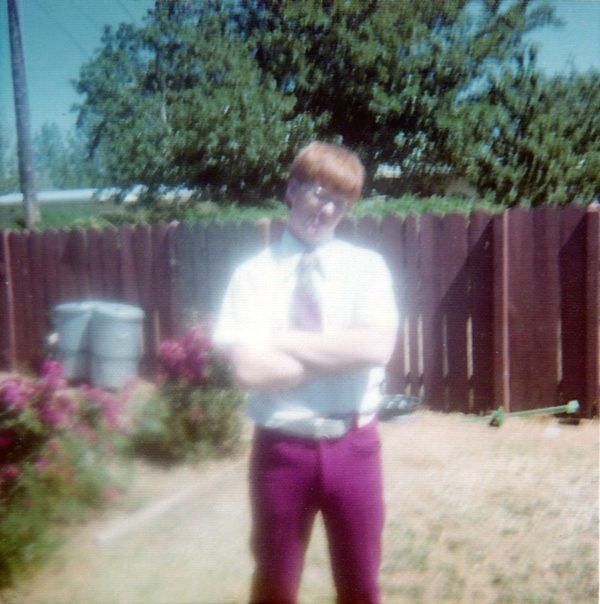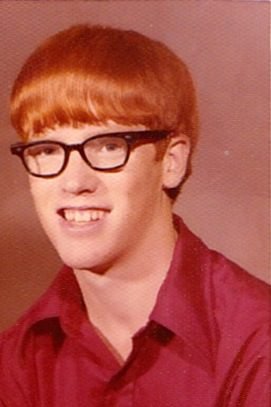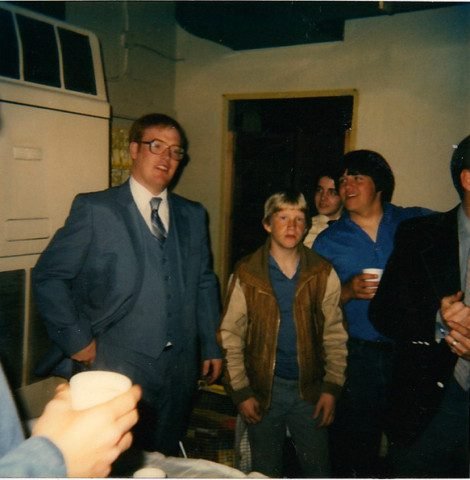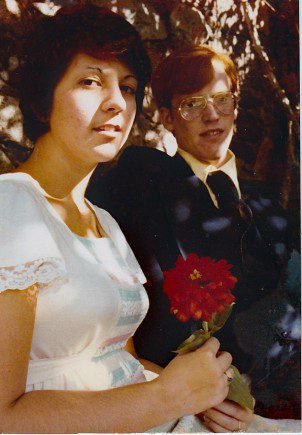
Several years ago, my editor, Carolyn, asked me a question about how my philosophy of ministry had changed from when I first began preaching in 1976 until I left the ministry in 2005. I thought her question would make for an excellent blog post.
I typically date my entrance into the ministry from when I enrolled for classes at Midwestern Baptist College in the fall of 1976. I actually preached my first sermon at age 15, not long after I went forward during an evening service at Trinity Baptist Church in Findlay, Ohio, and publicly declared to my church family that God was calling me into the ministry. My public affirmation of God’s call was the fulfillment of the desire I expressed as a five-year-old boy when someone asked me: what do you want to be when you grow up? My response was, I want to be a preacher. Unlike many people, I never had any doubts about what I wanted to do with my life. While I’m unsure as to why this is so, all I know is this: I always wanted to be a preacher.
Trinity Baptist Church was an Independent Fundamentalist Baptist (IFB) church, affiliated with the Baptist Bible Fellowship (BBF). From my preschool years forward, every church I attended was either an IFB church or a generic Evangelical congregation. When I entered Midwestern in 1976, all that I knew about the Bible, the ministry, and life itself was a result of the preaching, teaching, and experiences I had at the churches I had been part of. These churches, along with my training at Midwestern, profoundly affected my life, filling my mind with theological, political, and social beliefs that shaped my worldview. These things, then, became the foundation of my philosophy of ministry.
The fact that I grew up in a dysfunctional home also played a big part in the development of my ministerial philosophy. During my elementary and high school years, I attended numerous schools. The longest spell at one school was the two-and-a-half years I spent at Central Junior High School and Findlay High School in Findlay Ohio. All told, I attended four high schools, two junior high schools, and five elementary schools. Someone asked me years ago if I went to so many different schools because my dad got transferred a lot. I laughed, and replied, no, dad just never paid the rent. While my father was always gainfully employed, the Gerencser family was never far from the poor house, thanks to nefarious financial deals and money mismanagement. I quickly figured out that if I wanted clothing, spending money, and, at times, lunch money, it was up to me to find a way to get the money to pay for these things. There were times that I sneaked into my dad’s bedroom and stole money from his wallet so I could pay for my school lunches. Dad thought that the local Rink’s Bargain City — which I called Bargain Shitty — was the place to buy clothing for his children. I learned that if I wanted to look like my peers that I was going to have to find a way to get enough money to pay for things such as Converse tennis shoes, platform shoes, and Levi jeans. In my early junior high years, I turned to shoplifting for my clothing needs. From ninth grade forward, I had a job, whether it was mowing grass, raking leaves, shoveling snow, or holding down a job at the local Bill Knapp’s restaurant. I also worked at my dad’s hobby shop, for which he paid me twenty-five cents an hour, minus whatever I spent for soda from the pop machine. (Please see Questions: Bruce, How Was Your Relationship with Your Father? and Questions: Bruce Did Your Bad Relationship with Your Father Lead to You Leaving Christianity?)
My mother, sexually molested by her father as a child and later raped by her brother-in-law, spent most of her adult life battling mental illness. Mom was incarcerated against her will several times at the Toledo State Mental Hospital. She attempted suicide numerous times, using everything from automobiles, to pills, to razor blades to bring about her demise. One such attempt when I was in fifth grade left an indelible mark, one that I can still, to this day, vividly remember. I rode the bus to school. One day, after arriving home, I entered the house and found my mom lying in a pool blood on the kitchen floor. She had slit her wrists. Fortunately, she survived, but suicide was never far from her mind. At the age of fifty-four, Mom turned a .357 Magnum Ruger revolver towards her heart and pulled the trigger. She bled out on the bathroom floor. (Please see Barbara.)
It is fair to say that we humans are the sum of our experiences, and that our beliefs are molded and shaped by the things we experience in life. I know my life certainly was. As I reflect on my philosophy of ministry, I can see how these things affected how I ministered to others. The remainder of this post will detail that philosophy and how it changed over the course of my life.
When I entered the ministry, my philosophy was quite simple: preach the gospel and win souls to Christ. Jesus was the solution to every problem, and if people would just get saved, all would be well. I find it interesting that this Jesus-centric/gospel-centric philosophy was pretty much a denial of what I had, up until that point, experienced in life. While the churches I attended certainly preached this philosophy, my real-life experiences told me that Jesus and salvation, while great, did not change people as much as preachers said they did. But, that’s the philosophy I was taught, so I entered the ministry with a burning desire to win as many souls as possible, believing that if I did so it would have a profound effect on the people I ministered to.
I also believed that poor people (and blacks) were lazy, and if they would just get jobs and work really, really hard, they would have successful lives. Lost on me was the fact that I worked really, really hard, yet I was still poor. There’s that cognitive dissonance. I would quickly learn as a young married man that life was more complex than I first thought, and that countless Americans went to work every day, worked hard, did all they could to become part of the American middle class, yet they never experienced the American dream. I also learned that two people can be given the same opportunities in life and end up with vastly different lives. In other words, I learned that we humans are complex beings, and there’s nothing simple about life on planet earth. I learned further that good things happen to bad people and bad things happen to good people. I would much later in life conclude that life is pretty much a crapshoot.
In 1983, I started the Somerset Baptist Church in Somerset, Ohio. Somerset Baptist was an Independent Fundamentalist Baptist church. I pastored this church for almost twelve years. During this time, the church grew from a first-service attendance of sixteen to an average attendance of over two hundred. The church also experienced a decline in membership over time, with fifty or so people attending the last service of the church. Somerset Baptist was located in Perry County, the northernmost county in the Appalachian region. Coal mines and stripper oil wells dotted the landscape. Unemployment was high. In the 1980s, unemployment exceeded twenty percent. It should come as no surprise then, that most of the members of Somerset Baptist were poor. Thanks in part to my preaching of the Calvinistic work ethic (also known as the shaming of people who don’t have jobs), all the men of the church were gainfully employed, albeit most families were receiving food stamps and other government assistance. During the years I spent at this church, I received a world-class education concerning systemic poverty. I learned that people can work hard and still not get ahead. I also learned that family dysfunction, which included everything from drug/alcohol addiction, domestic violence, child abuse, and even incest, often was generational; that people were the way they were, with or without Jesus, because that’s all they knew. I pastored families that had never been more than fifty miles from their homes. At one point, some members of our church took a church auto trip to Virginia, and I recall how emotional some members were when they crossed the bridge from Ohio into West Virginia. It was the years I spent in Somerset Ohio that dramatically changed how I viewed the world. This, of course, led to an evolving philosophy of ministry.
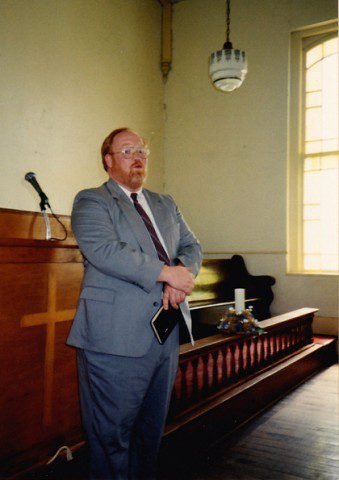
While I never lost my zeal to win souls for Christ, my preaching, over time, took on a more comprehensive, holistic approach. Instead of preaching, get right with God and all would be well, I began to teach congregants how to apply the Bible to every aspect of their lives. I stop preaching textual and topical sermons, choosing instead to preach expositionally through various books of the Bible. I also realized that one way I could help the children of the church was to provide a quality education for them. Sure, religious indoctrination was a part of the plan, but I realized that if the children of the church were ever going to rise above their parents, they were going to have to be better educated. For my last five years at Somerset Baptist, I was the administrator and a teacher at Somerset Baptist Academy — a private, tuition-free school for church children. My wife and I, along with several other adults in the church, were the primary teachers. Our focus was on the basics: reading, English, writing, and arithmetic. Some of the students were years behind in their education. We used a one-room schoolhouse approach, and there were several instances of high school students doing math with third-grade students. We educated children where they were, regardless of their grade level. Polly taught the younger students, and was instrumental in many of them learning to read. Most of the students, who are now in their thirties and forties, have fond memories of Polly teaching them reading and English. Their memories are not as fond of Preacher, the stern taskmaster.
During the five years we operated the school, I spent hours every day with the church’s children. I learned much about their home lives and how poverty and dysfunction affected them. Their experiences seem so similar to my own, and over time I began to realize that part of my ministerial responsibility was to minister to the temporal social needs of the people I came in contact with. This change of ministry philosophy would, over time, be shaped and strengthened by changing political and theological beliefs.
In 1995, I started a new church in West Unity, Ohio called Grace Baptist Church. The church would later change its name to Our Father’s House — reflecting my increasing ecumenicalism. During the seven years I spent in West Unity, my preaching moved leftward, so much so that a man who had known me in my younger years told me I was preaching another gospel — the social gospel. My theology moved from Fundamentalist Calvinism to theological beliefs focused on good works. I came to believe that true Christian faith rested not on right beliefs, but good works; that faith without works was dead; that someday Jesus would judge us, not according to our beliefs, but by our works. While at Our Father’s House, I started a number of ministries that were no-strings-attached social outreaches to the poor. The church never grew to more than fifty or sixty people, but if I had to pick one church that was my favorite it would be this one. Outside of one kerfuffle where a handful of families left the church, my time at Our Father’s House was peaceful. For the most part, I pastored a great bunch of people who sincerely loved others and wanted to help them in any way they could.
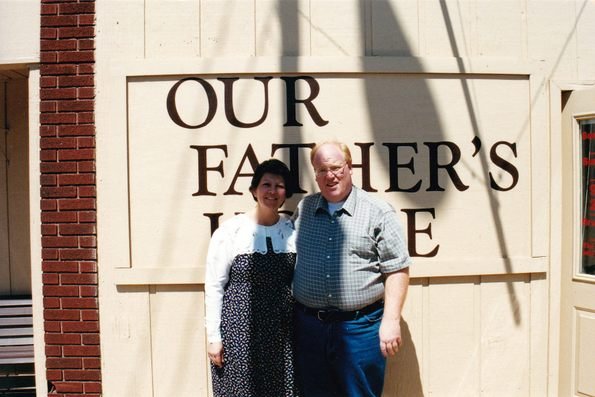
In 2000, I voted Democrat for the first time. As my theology became more liberal, so did my politics, and by the time I left the ministry in 2005, I was politically far from the right-wing Republicanism of my early years in the ministry. Today, I am as liberal as they come. Politically, I am a Democratic Socialist. To some people, depending on where they met me in life, my liberal beliefs are shocking. One man was so bothered by not only my politics, but my loss of faith, that he told me he could no longer be friends with me; that he found my changing beliefs and practices too psychologically unsettling.
I’m now sixty-five years old, and come next July, I will be married to my beautiful bride for forty-five years. Much has changed in my life, particularly in the last decade, but one constant remains: I genuinely love people and want to help them. This is why some people think I am still a pastor, albeit an atheist one. I suspect had I been born into a liberal Christian home I might have become a professor or a social worker, and if I had to do it all over again I probably would have pursued these types of careers, choosing to be a bi-vocational pastor instead of a full-time one. But, I didn’t, and my life story is what it is. Perhaps when I am reincarnated, I will get an opportunity to walk a different path. But, then again, who knows where that path might take me. As I stated previously, we humans are complex beings, and our lives are the sum of our experiences. Change the experiences, change the man.
I hope that I’ve adequately answered my editor’s question. This post turned out to be much longer than I thought it would be, much like my sermons years ago.
Bruce Gerencser, 68, lives in rural Northwest Ohio with his wife of 47 years. He and his wife have six grown children and sixteen grandchildren. Bruce pastored Evangelical churches for twenty-five years in Ohio, Texas, and Michigan. Bruce left the ministry in 2005, and in 2008 he left Christianity. Bruce is now a humanist and an atheist.
Your comments are welcome and appreciated. All first-time comments are moderated. Please read the commenting rules before commenting.
You can email Bruce via the Contact Form.





